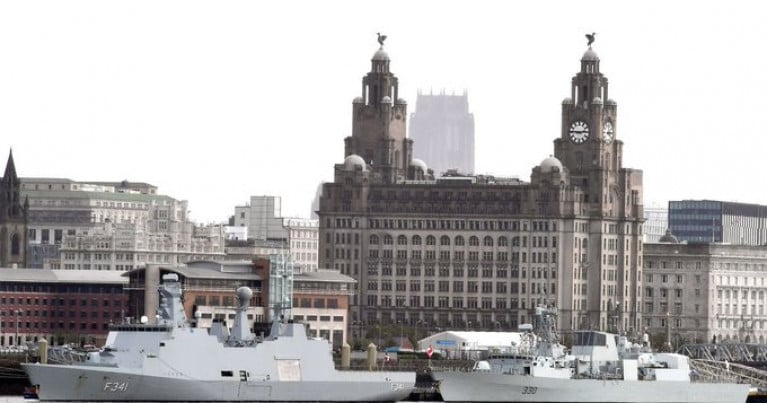Displaying items by tag: Naval exercise
NATO Warships Off North Wales Coast Anchor Ahead of 'Largest Military Exercise in Europe'
Two large naval warships which were spotted off North Wales this week, have berthed at the Port of Liverpool (Afloat adds, this morning they departed into the Irish Sea).
The Royal Canadian Navy's Royal Danish Navy's HDMS Absalon and HMCS Halifax arrived at the city's Cruise Liner Terminal on Thursday (yesterday).
Earlier this week, they were spotted off the coast of North Wales.
Officials then remained tight-lipped about why they were in the area, but it is understood that they are taking part in a major two-week exercise off Scotland later this month.
Joint Warrior takes place in the spring and autumn each year, reports the Liverpool Echo.
More on this naval flotilla from NorthWalesLive here.





























































